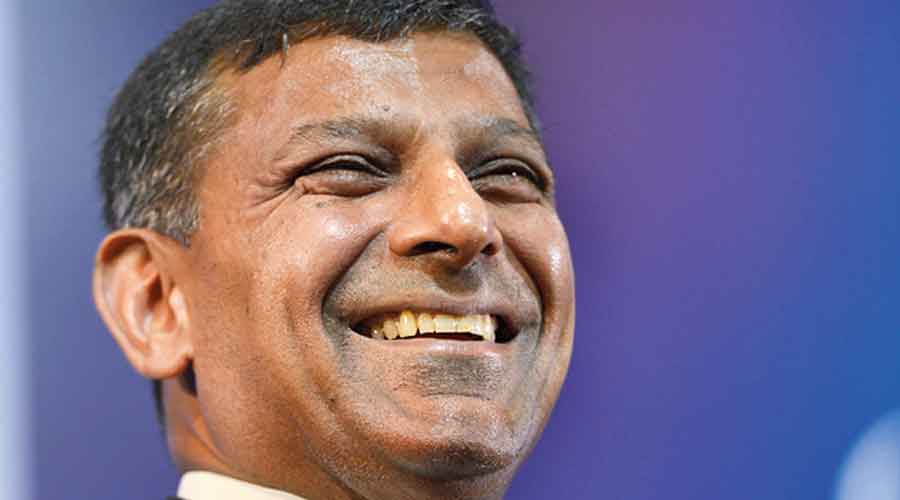The Indian economy has “some bright spots and a number of very dark stains”, former RBI governor Raghuram Rajan said on Sunday, adding that the government should target its spending “carefully” to avert huge deficits.
Rajan, currently a professor at the University of Chicago Booth School of Business, said the government needed to do more to prevent a K-shaped recovery of the Covid-hit economy.
Generally, a K-shaped recovery reflects a situation where technology and large capital firms recover at a far faster rate than small businesses and industries.
“My greater worry about the economy is the scarring to the middle class, the small and medium sector, and our children’s minds, all of which will come into play after an initial rebound due to pent up demand. One symptom of all this is weak consumption growth, especially for mass consumption goods,” Rajan told PTI in an email interview.
He said that as always, the economy had some bright spots and several very dark stains.
“The bright spots are the health of large firms, the roaring business the IT and IT-enabled sectors are doing, including the emergence of unicorns in a number of areas, and the strength of some parts of the financial sector,” he said.
The dark stains are the extent of unemployment and low buying power, especially among the lower middle-class; the financial stress that small and medium-sized firms are experiencing, “including the very tepid credit growth”; and “the tragic state of our schooling”.
Rajan said the emergence of omicron was a setback, both medically and in terms of economic activity.
“We need to do more to prevent a K-shaped recovery, as well as a possible lowering of our medium-term growth potential,” he said.
India’s GDP is expected to grow at over 9 per cent in the current financial year, which ends on March 31. The pandemic-hit economy had contracted 7.3 per cent in the last fiscal.
Speaking ahead of the February 1 Union budget, Rajan said he would love to see a five-year or ten-year vision for India and a plan for the kinds of institutions and frameworks the government intended to set up.
On whether the government should go for fiscal consolidation or continue with stimulus measures, Rajan said India’s fiscal situation had not been good even coming into the pandemic and so the finance minister could not spend freely now.
While the government must spend where it’s necessary to alleviate the pain in the most troubled areas of the economy, Rajan said, “We must target the spending carefully so that we do not run huge deficits.”
On the rising inflation, Rajan said inflation was a concern in every country and it would be hard for India to be an exception.
He said that announcing a credible target for the country’s consolidated debt over the next five years, coupled with the establishment of an independent fiscal council to comment on the quality of the budget, would be very useful steps.
“If these moves are seen as credible, the debt markets may be willing to accept a higher temporary deficit,” he said.
To convince the markets that “we will be responsible, we should strengthen the institutional support to future fiscal consolidation”.
Rajan said that one way to expand budgetary resources was through asset sales, including parts of government enterprises and surplus government land.
“We need to be strategic about what we can sell and how we can improve the economy’s performance through those sales.... Once we decide to sell, though, we should move fast, something we have not done so far,” he said.
Rajan said he would be happy to see more tariff cuts and far fewer tariff increases in the upcoming budget, and far fewer sops or subsidies to specific industries.
“Particularly, (I) would welcome an independent assessment of the Production Linked Incentive schemes,” he said.

